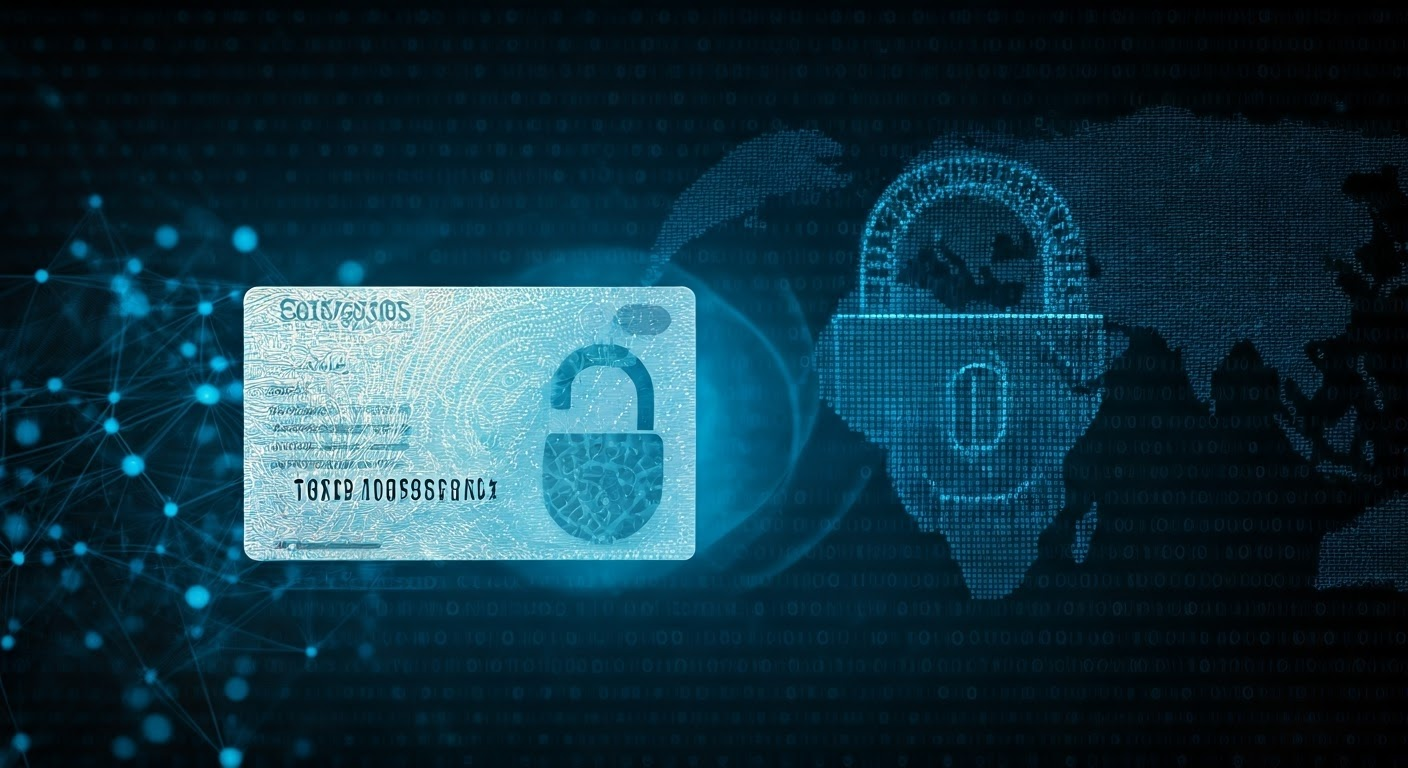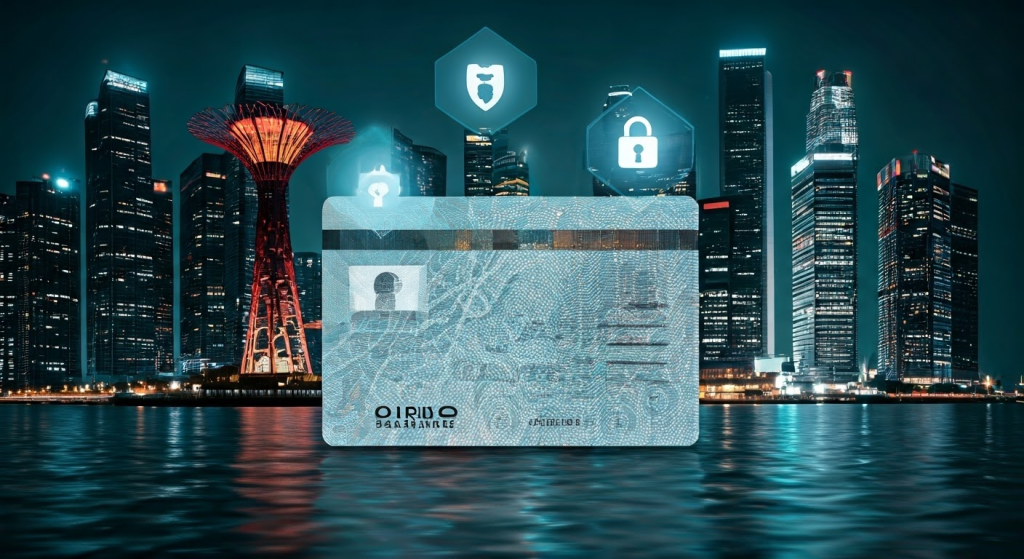
Key Highlights
- Organizations should only collect NRIC numbers for legitimate purposes. Avoid using them for identification or as default passwords.
- The Personal Data Protection Act (PDPA) governs personal data in Singapore, including NRIC numbers.
- Businesses need to notify individuals of the purpose of collecting their NRIC numbers, get consent, and ensure the data is appropriately protected.
- Individuals have the right to access and correct their personal data. They can report suspected misuse of their NRIC numbers to the authorities.
- Both individuals and organizations need to stay informed about their rights and responsibilities regarding NRIC data to prevent misuse.
Other Tool : NRIC Generator | NRIC Validator | Bulk NRIC Generator | Bulk NRIC Validator | NRIC Barcode Generator
Introduction
In today’s digital age, it’s very important to handle personal data carefully, including unique identifiers like NRIC numbers in Singapore. As technology moves forward, we must find a balance between making things easy and protecting sensitive information, like NRIC numbers. This blog post looks at the rules for collecting and using NRIC numbers in Singapore. It highlights what organizations must do and what rights individuals have.
Understanding the Legal Framework Around NRIC Numbers in Singapore
The laws about NRIC numbers in Singapore mainly come from the Personal Data Protection Act (PDPA). This important law gives rules on how to collect, use, share, and keep safe personal data, including NRIC numbers and the identity card.
The aim is to make sure we can use NRIC numbers for ID while also protecting people’s privacy and stopping misuse. To follow these rules, it is important to know the main parts of the PDPA, the Association of Banks, and other Singapore laws that directly mention NRIC numbers.
The Personal Data Protection Act (PDPA) and NRIC Numbers
The Personal Data Protection Act (PDPA) in Singapore controls how individual’s NRIC numbers are used, underscoring the responsible use of NRIC numbers. This law helps keep people’s private information safe. Both public agencies and private organisations need to treat individual’s NRIC numbers very carefully. They must protect this data from being shared without permission. Minister highlights the importance of being careful when collecting and using NRIC information. Any sharing of NRIC numbers has to follow the rules in the PDPA. This helps stop misuse and keeps personal data safe. The PDPA is very important for managing how NRIC numbers are used in both the public and private sectors.
Key Provisions Relating to NRIC under Singapore Law
Information Minister highlighted the sensitivity of NRIC numbers in a statement made in 2025. She said that NRIC numbers should not be the only way to confirm a person’s identity and could potentially grant access to privileged information. This means that organizations should not just depend on having someone’s NRIC number to know who they are, as emphasized by the Ministry of Digital Development.
While an NRIC number is not confidential by itself, we must use it wisely. For example, healthcare places may need full NRIC numbers, or the disclosure of full NRIC number secrets, to correctly identify patients for better record-keeping and medical treatment as well as when subscribing to a mobile telephone line.
The government is working to reduce the unnecessary collection and sharing of NRIC numbers. They are promoting other ways to identify people, like using mobile numbers. This includes re-evaluating the new Accounting and Corporate Regulatory Authority’s Bizfile portal search function to keep things efficient while also protecting personal data better.
The Do’s and Don’ts of Collecting NRIC Numbers
When dealing with NRIC numbers, some actions are allowed, and others should never be done. It is important for businesses and individuals to know the difference to stay legal.
For businesses, collecting NRIC numbers should only happen when it is really needed for a valid reason. They should not keep paper copies of NRIC cards or store complete NRIC numbers online unless it is really important.
Legitimate Purposes for Collecting NRIC Numbers
The use of NRIC numbers is very important in many areas. Usually, you need to provide your NRIC number for legal transactions, like dealing with government agencies or opening bank accounts.
In healthcare, collecting NRIC numbers helps to correctly identify patients. This reduces medical mistakes and makes it easier to manage records. Financial institutions also use NRIC numbers to check identities when people apply for loans or make large transactions. This helps to lower the risk of fraud.
Private sector organizations should look at how they collect data, especially regarding the collection of full NRIC numbers of visitors. They need to think about whether another way of identification might work. If they must collect NRIC numbers, it is very important to be clear. They should tell people why they need this number and how it will be used.
Common Misuses of NRIC Numbers to Avoid
Many people misuse NRIC numbers. This can lead to privacy issues and possible harm. One common mistake is taking actions that involve using NRIC numbers as a way to verify identity, contributing to incorrect practices that may grant a person access to sensitive information. Just having the number does not confirm who someone is.
Another common problem is the continued use of only part of the NRIC number for security. This may seem protective, but as Meng highlights, it creates a false sense of security. The easy availability of such algorithms available to the public can piece together the full NRIC number from just a part of it.
The private sector needs to stop these practices. They should use better ways to identify and verify people. This will help protect personal data and build more trust between businesses and customers.
Obligations of Organizations in Handling NRIC Numbers
Organizations that manage NRIC numbers have a big responsibility. They must make sure they exercise their duty of care in handling them safely and using them properly. This isn’t just about following the PDPA. It also means using the best ways to protect this sensitive information.
To keep NRIC data safe, a detailed strategy is needed. This includes strong security measures for storage, clear procedures for handling data, and regular training for staff on how to protect information.
Storage and Security Measures for NRIC Data
Organizations must have strong storage and security steps to keep NRIC data safe from unauthorized access, sharing, or use. This means they need both physical and digital security methods.
For physical security, they should ensure that any paper copies with NRIC information are kept safe and access is limited. For digital security, they must encrypt full NRIC numbers when stored electronically and use strong passwords to control who can access databases with this information.
Also, organizations should allow access to NRIC data only to those who need it. These protections are key to ensuring data protection and stopping possible misuse.
Penalties for Non-Compliance with PDPA Guidelines
The Personal Data Protection Commission (PDPA) makes sure the laws about data protection are followed. They also look into any complaints about possible issues. If organizations do not follow the PDPA rules, they can face serious penalties.
If a company breaks the PDPA, they might get fined. These fines can go up to S$1 million or 10% of their annual earnings in Singapore, whichever amount is greater. This shows how important it is to follow good practices for personal data protection.
Not only can financial fines hit a company hard, but data breaches can also harm how people see the organization. Trust from customers can take a big hit, too. This is why it is crucial for organizations to take measures to comply and prevent any legal problems related to personal data.
Individual Rights Regarding Their NRIC Information
Singaporeans have certain rights concerning their NRIC information. Knowing these rights helps people manage their personal data and deal with any misuse.
It’s important to know that individuals can ask to see the NRIC information organizations have. They can also ask for corrections to make sure the data is accurate and to stop wrong personal data from spreading.
Requesting Access to and Correction of NRIC Information
Under the PDPA, people can ask to see their NRIC information that organizations have. This helps them check if their data is correct and know how it is being used. Organizations must allow this access within a reasonable time.
Also, individuals can ask for any wrong or missing NRIC information to be corrected. This helps keep their information current and accurately shows their identity.
These rights give people control over their personal data. It also makes sure their information is accurate and handled safely by organizations.
How to Report Unauthorized Use of NRIC Numbers
Individuals who think their NRIC numbers are being used without permission should act quickly. Start by collecting important details like dates, times, and any information about the suspected misuse.
Next, report what happened to the organization involved. Share your worries and ask for an internal investigation to look into the issue. If the organization doesn’t respond well, you can file a formal complaint with the PDPA.
Reporting the unauthorized use of NRIC numbers is important. It helps hold organizations responsible and can stop future misuse. Taking these steps helps keep a safe and trustworthy environment for the use of NRIC numbers.
Best Practices for Individuals and Businesses
Both people and companies have an important part in protecting NRIC numbers. Using good practices helps keep this sensitive information safe and reduces risks.
For individuals, it is essential to be careful when sharing their NRIC numbers. They should also know what giving consent means and check their privacy settings regularly.
For Individuals: Protecting Your NRIC Number
Protecting your NRIC number and user ID is very important to stop identity theft and fraud. You should pay attention to who you share your NRIC number with. Don’t reveal it unless you really have to, especially not on public sites or unsecure networks.
If someone asks for your NRIC number, ask why they need it and how they will use it. Mrs Teo emphasized that you have the right to say no if you feel uneasy about sharing your NRIC number or if the request feels strange.
Always check your privacy settings on social media and online accounts. Keep the amount of personal information available to the public as low as possible. This includes not sharing your full NRIC number or any part of it.
For Businesses: Implementing PDPA-Compliant Processes
Businesses must care for the NRIC numbers they collect. It is important to follow PDPA processes. This helps keep your customers’ trust.
First, look at your current practices. Make sure they follow PDPA rules for collecting, using, sharing, and protecting personal data. Check regularly for any issues in how you handle data.
Also, train your staff on PDPA rules and best practices for NRIC data. Teach them about secure storage, who can access the data, and how to quickly respond to requests for data access and corrections.
Conclusion
In conclusion, it is very important to understand and follow the rules about collecting and using Singapore NRIC numbers. The Personal Data Protection Act (PDPA) makes it essential to handle NRIC data safely to avoid penalties if rules are broken. Businesses should store NRIC numbers securely and only collect them for valid reasons. This helps build trust with customers. Individuals should also take steps to protect their NRIC information. By doing this, we create a safer environment and make sure data handling is clear. Stay updated, follow good practices, and focus on data privacy to comply with rules and protect sensitive information.
Frequently Asked Questions
Can businesses request for my NRIC number for any service?
Businesses can ask for your NRIC number only if it follows the law and is for a good reason. Always ask why they need this information. Think about privacy issues carefully. Be careful before you give out your NRIC number.
What should I do if I suspect my NRIC number is being misused?
If you think someone is misusing your NRIC number, change any passwords linked to it right away. Look into ways to report the issue. You might want to consider protective steps, like credit monitoring. If needed, you can also seek legal help.
Are there specific guidelines or regulations that govern the collection and use of Singapore NRIC numbers?
Singapore’s Personal Data Protection Act (PDPA) has specific rules about how to collect and use NRIC numbers. It focuses on keeping personal data safe, respecting individual rights, and adhering to advisory guidelines. Make sure your actions follow PDPA rules. This is important for both compliance and good data protection practices.
What are the potential consequences of mishandling or misusing Singapore NRIC numbers?
Mishandling or misusing NRIC numbers can result in serious problems. These can include big fines and harm to a company’s reputation. Organizations need to understand their responsibilities. They should focus on handling data carefully to prevent unfortunate missteps. This way, they can avoid these major issues.


